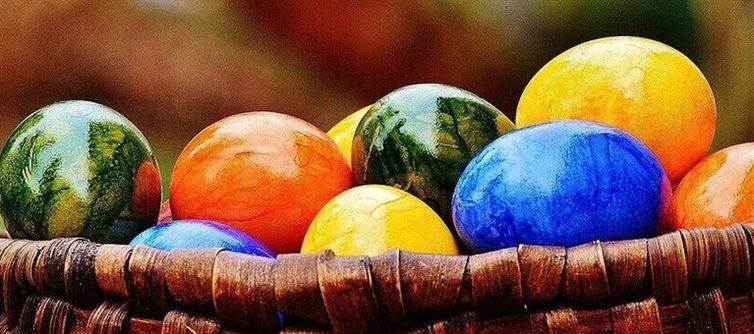
One of the major occasions in the Christian calendar is easter, which honors the resurrection of Jesus Christ. The date is april 20. As people take part in religious services, create and exchange easter eggs, and play traditional easter activities, the day is filled with food and celebration.
What is Easter?
Easter is seen as a crucial occasion in the Christian religion and is a celebration of life triumphing over death. Ecclesiastical tradition states that it occurs on the first sunday following the Paschal Full Moon, which occurs after the spring equinox. As a result, the date varies annually by lunar cycles. Usually, it takes place from march 22 to april 25.
It is the last day of Holy Week, which includes Good friday (Jesus' crucifixion), Maundy thursday (Last Supper), easter sunday (Jesus' resurrection), and Palm sunday (Jesus' entry into Jerusalem).
Easter: history of using eggs
Before christianity, the egg was a sign of rebirth and fresh life. In ancient cultures, eggs were linked to fertility and the earth's rebirth in the spring. Easter egg customs are said to have originated from pagan spring festivities, particularly those that honored fertility goddesses such as Ēostre, an Anglo-Saxon deity whose name may have been the source of the word Easter.
The egg was embraced by early Christians as a representation of Jesus' resurrection. When Lent came to an end on easter, eggs were frequently among the first foods consumed to break the fast. Children look for hidden eggs, which are typically toys or candy. It's interesting to note that decorating and coloring eggs is a common custom, especially in eastern Europe.
Over time, the custom grew to include chocolate easter eggs, which gained popularity in the late 1800s. France and germany were the first countries in europe to produce chocolate easter eggs.
What is Easter?
Easter is seen as a crucial occasion in the Christian religion and is a celebration of life triumphing over death. Ecclesiastical tradition states that it occurs on the first sunday following the Paschal Full Moon, which occurs after the spring equinox. As a result, the date varies annually by lunar cycles. Usually, it takes place from march 22 to april 25.
It is the last day of Holy Week, which includes Good friday (Jesus' crucifixion), Maundy thursday (Last Supper), easter sunday (Jesus' resurrection), and Palm sunday (Jesus' entry into Jerusalem).
Easter: history of using eggs
Before christianity, the egg was a sign of rebirth and fresh life. In ancient cultures, eggs were linked to fertility and the earth's rebirth in the spring. Easter egg customs are said to have originated from pagan spring festivities, particularly those that honored fertility goddesses such as Ēostre, an Anglo-Saxon deity whose name may have been the source of the word Easter.
The egg was embraced by early Christians as a representation of Jesus' resurrection. When Lent came to an end on easter, eggs were frequently among the first foods consumed to break the fast. Children look for hidden eggs, which are typically toys or candy. It's interesting to note that decorating and coloring eggs is a common custom, especially in eastern Europe.
Over time, the custom grew to include chocolate easter eggs, which gained popularity in the late 1800s. France and germany were the first countries in europe to produce chocolate easter eggs.




 click and follow Indiaherald WhatsApp channel
click and follow Indiaherald WhatsApp channel